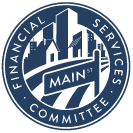|
Hensarling Opening Statement at Hearing with Federal Reserve Vice Chairman for Supervision |
WASHINGTON – Financial Services Committee Chairman Jeb Hensarling (R-TX) delivered the following opening statement at today’s hearing with the Federal Reserve’s Vice Chairman for Supervision Randal Quarles:
This morning, we welcome back for his semi-annual testimony, The Honorable Randy Quarles, the Federal Reserve’s Vice Chairman for Supervision.
As we know all too well, the Dodd-Frank Act dramatically increased the Fed’s powers way beyond its traditional monetary policy responsibilities.
Through so-called “heightened prudential standards,” the Fed can functionally now control the largest financial institutions in our economy, which is most disconcerting. Increased capital and liquidity standards, as long as they are not counter-productive or duplicative, add to stability; regulatory complexity and micro-management do not. If not properly tailored and calibrated, both hinder economic growth.
Two weeks ago, the Fed proposed changes to the supervisory requirements for some financial institutions. These proposals are the direct result of the House-led deregulatory and pro-growth provisions contained in the “Economic Growth, Regulatory Relief and Consumer Protection Act.” These proposals are a most welcome sign of progress. But to be clear, they do not yet represent success. If they represent the Fed’s final offerings; it’s pretty thin gruel.
There is clearly a direct connection between sluggish economic growth and the regulatory tsunami we experienced for nearly two decades prior to President Trump taking office. Studies, including one by the Mercatus Center, found that regulatory drag on the economy can be attributed to a loss in real income of approximately $13,000 for every American – a staggering figure.
We should note that while total overall regulatory restrictions have increased by nearly 20 percent since 1997, regulatory restrictions on “finance and insurance” have increased by a whopping 72 percent.
That is why this Committee has devoted so much time and attention to legislation, much of it bipartisan, that properly tailors financial regulation.
Certainly we can never lose sight of systemic risk, but neither can we lose sight of economic growth which today has led to the lowest unemployment rate in 50 years, the greatest wage increases in a decade, and a resurgence of optimism by both consumers and businesses.
The Vice Chairman previously has expressed his support for a comprehensive evaluation and improvement of the post-crisis regulatory regime, guided by the principles of efficiency, transparency, and simplicity of regulation. These are indeed laudable principles. I would suggest including one other, the principle that the rule of law not be supplanted by the arbitrary discretion of the regulators. That means keeping regulators out of the board room, both literally and figuratively, and kept out of management decisions.
While I am pleased to see this Fed’s willingness to better tailor, perform cost-benefit analyses, implement prudential regulatory risk adjustments, and propose amendments to the Volcker Rule, each of these as they stand should again be viewed simply as first steps and insufficient to truly propel our economy to sustained 4 percent economic growth.
Vice Chairman Quarles, again, I look forward to your testimony today and exploring with you the importance of ensuring that each of the Federal Reserve’s proposals arrive at results that truly are “transparent, efficient, and simple.”
###
|
